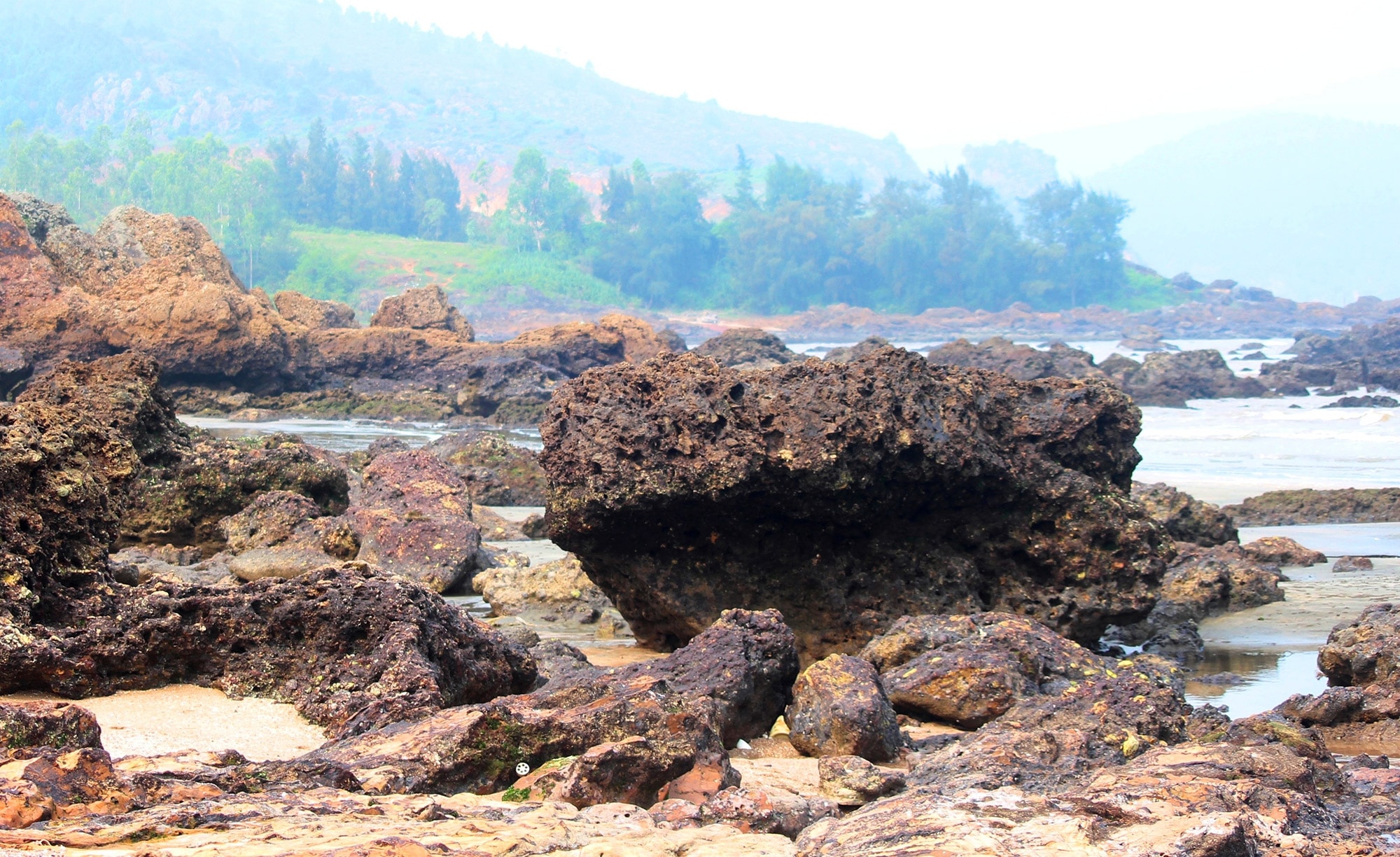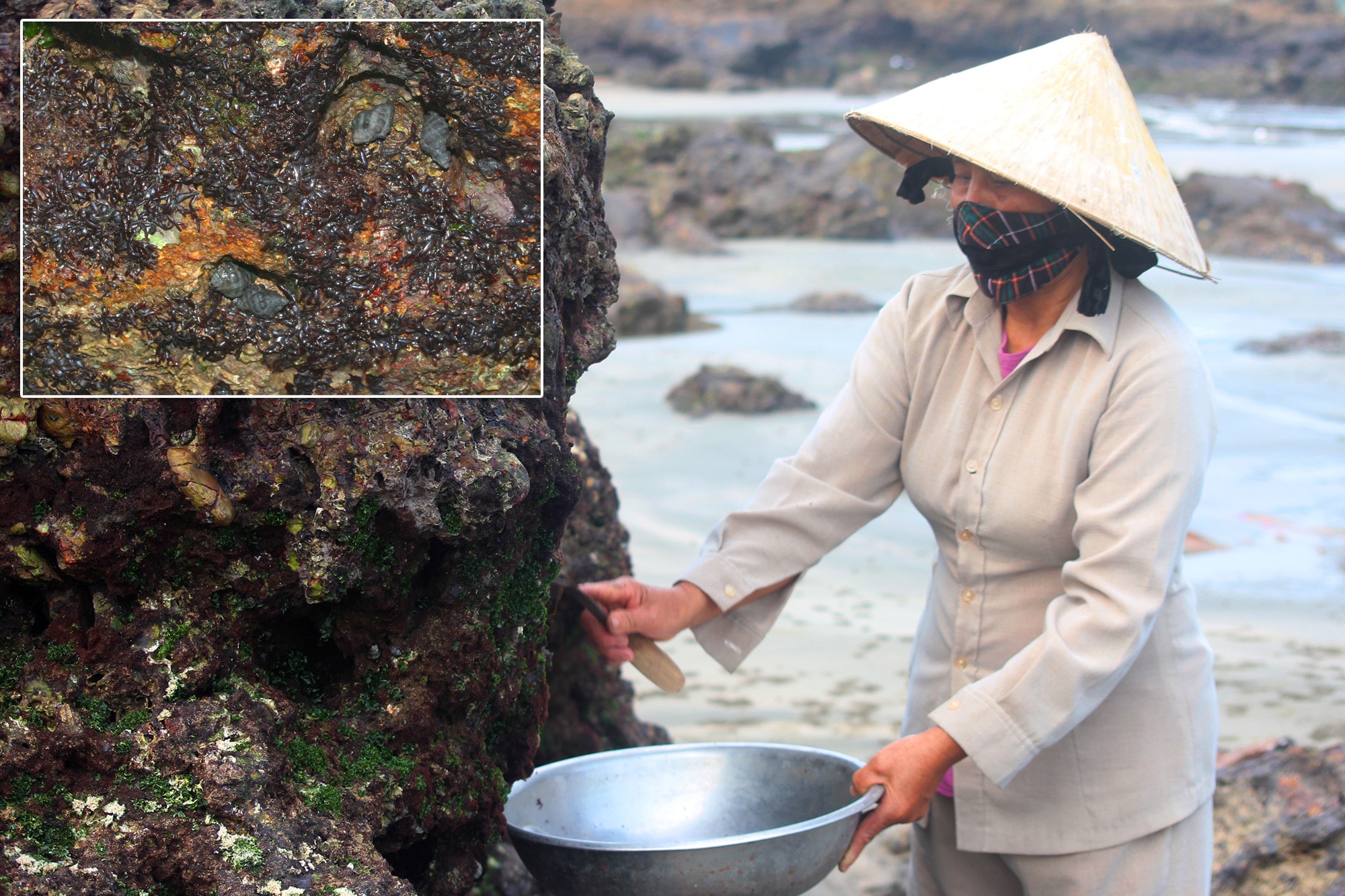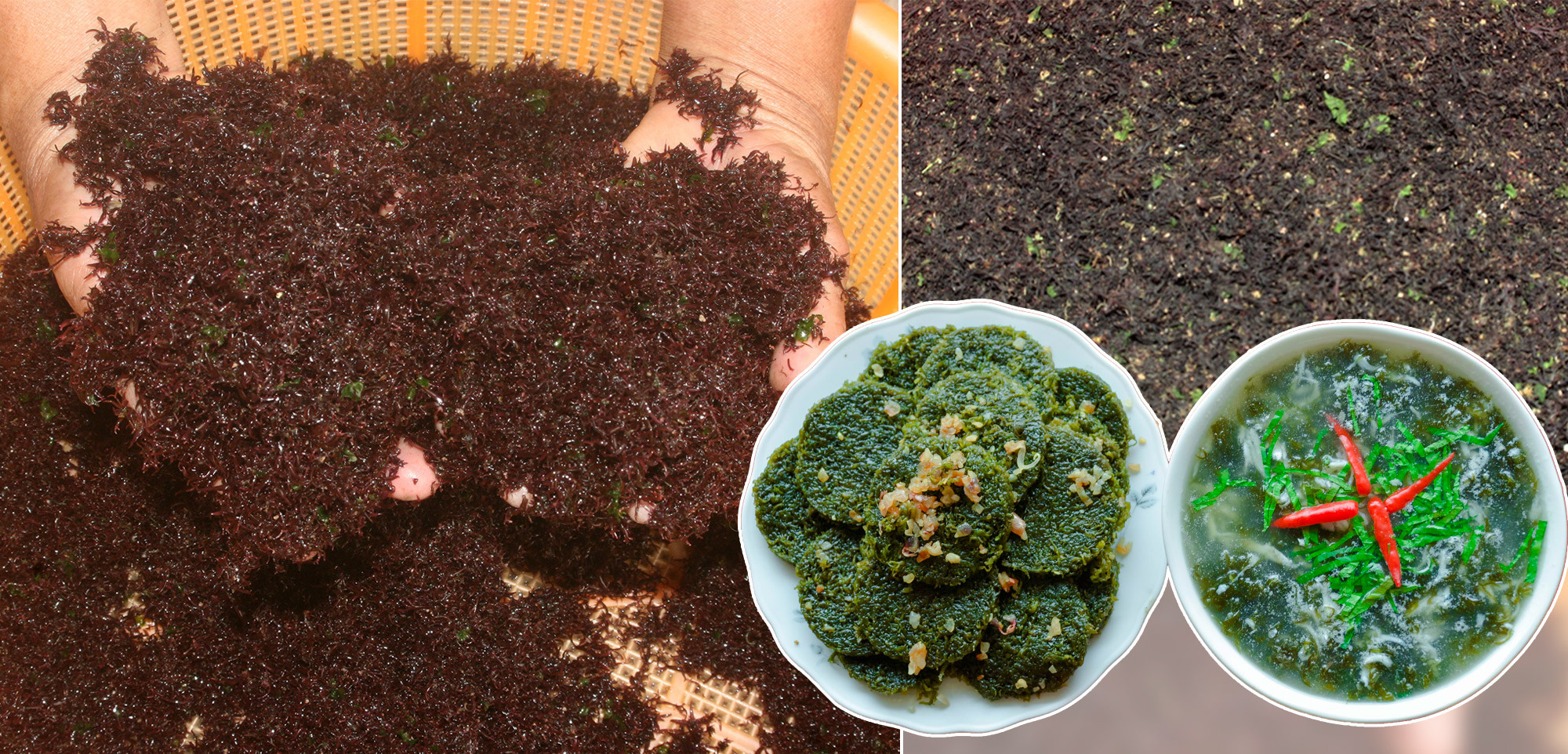Strange job of 'scraping stones to get vegetables' earns half a million dong per day in Nghe An
(Baonghean.vn) - When the tide goes down, the villagers bring their tools to the rocky shore to scrape the vegetable that grows naturally on the rocks, which is colloquially called "rau scraper" by the locals.
In addition to seafood exploitation, some people in the coastal villages of Quynh Luu (Nghe An) also have other "money-making" jobs, including scraping vegetables that grow naturally on coastal rocks, which people call "scraping vegetables".
Follow Mrs. Nguyen Thi Diem in Cong Hoa village, Quynh Long commune (Quynh Luu) to the rocky beach less than 500m from her house to get scraping herbs. The scraping blade and the basin are the necessary tools to scrape this herb that clings to the rocks.
 |
| Around February to May of the solar calendar, water spinach grows abundantly on rocky cliffs in Quynh Luu district. Photo: Viet Hung. |
According to Ms. Diem, from February to May of the solar calendar is the season to collect scraped vegetables. For the people of the coastal villages, it is not difficult to find this vegetable, because they know which sea areas have it and how to scrape it to avoid sand grains, snails, and rocks sticking to the vegetables. To scrape the vegetables, you have to wait until the tide goes down, the rocky reefs are exposed to collect them.
 |
| The vegetable grows on rocks, likes moisture, is very small in size and has a coffee-like color. To get this “special” vegetable, people use a scraper blade to press against the rock so that the vegetable falls into a basin. Photo: Viet Hung. |
“At the beginning of the season, because people came to collect few, the selling price was 200,000 VND/kg. Now, many people come to collect, so the price has dropped to 150,000 VND/kg. Every month, I go to collect vegetables and earn an extra 3-4 million VND,” said Ms. Diem.
During the season, people can harvest up to 3-5 kg of this vegetable, earning between 500,000 and 600,000 VND/day. After harvesting the vegetables at the beach, people wash them briefly, then bring them home to clean them, sift them carefully to remove grit, sand, and stones before bringing them to the market to sell.
If you don’t sell fresh vegetables, you dry them in the sun until they are dry, then use an iron hammer or wooden pestle to break them up so that all the stones and gravel mixed in with the vegetables fall out. Then wash them several times and dry them in the sun for a few more days before packaging them; every 4 kg of fresh vegetables will yield 1 kg of dried vegetables, which you can sell for 500,000 VND/kg.
 |
Freshly washed and cleaned, the price is 150,000 VND/kg. In season, people process the dried vegetables for preservation and convenience. Vegetables can be made into cakes to eat with vegetables and fruits or cooked into soup with a sweet, nutritious taste when used in the summer. Photo: Viet Hung - Nhat Thanh. |
From a rustic dish of the coastal villagers, thanks to its characteristic salty taste of the sea and especially in the summer, this vegetable helps to cool down and nourish the body, so gradually the dish of rau scraping has become a "specialty" loved by people everywhere, appearing in parties at restaurants and hotels. Rau scraping can be processed into cakes to eat with vegetables, fruits or cooked into a sweet soup. The best way to eat rau scraping cake is with braised fish.
Mr. Bui Van Phuc - Vice Chairman of Tien Thuy Commune People's Committee (Quynh Luu) added that the profession of collecting scraping vegetables has existed since his father's and grandfather's time and is still sought after by people to earn extra income.
